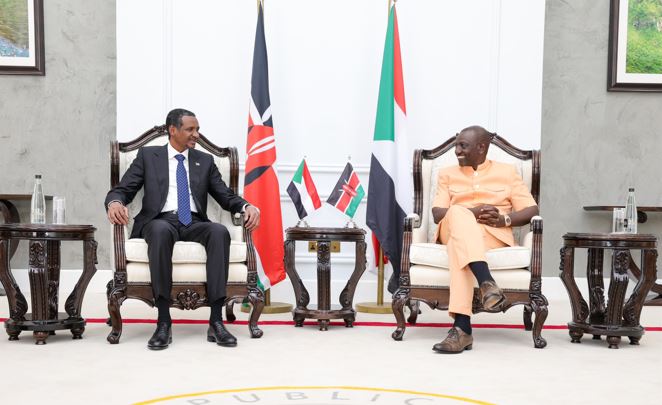Sudan bans imports from Kenya in retaliation for Nairobi's support of RSF

"The import of all products coming from Kenya through all ports, crossings, airports, and ports will be suspended as of this day until further notice," the directive said.
Sudan's military leadership has imposed an immediate ban on all imports from Kenya, including tea, in response to Nairobi's backing of the sanctioned Rapid Support Forces (RSF) and its attempt to establish a parallel government.
A circular issued on Thursday by Sudan's Ministry of Trade, and seen by The Eastleigh Voice, ordered an immediate halt to imports from Kenya.
More To Read
- Sudan army makes major gains in South Kordofan, retakes key villages from SPLM-N
- Sexual violence driving mass flight from Sudan to South Sudan: What you need to know
- Why UN’s gradual move back to Khartoum, Sudan is ‘an important step’
- Trump to focus on ending Sudan civil war
- IGAD leads new push for Peace in Sudan as regional and global partners back three-step plan
- UN aid office pushes for ‘unhindered’ humanitarian access in Sudan
"The import of all products coming from Kenya through all ports, crossings, airports, and ports will be suspended as of this day until further notice," the directive, written in Arabic, stated. It was signed by acting Trade Minister Omar Ahmed Mohamed.
Retaliatory move
The decision marks a sharp escalation in diplomatic tensions, as Sudan's junta, based in Port Sudan, pushes back against Kenya's warming ties with Mohamed Hamdan Dagalo ("Hemedti") and the RSF.
 President William Ruto (right) when he held talks with the leader of Rapid Support Forces Gen Mohamed Hamdan Dagalo at State House, Nairobi on January 3, 2023. (Photo: PCS)
President William Ruto (right) when he held talks with the leader of Rapid Support Forces Gen Mohamed Hamdan Dagalo at State House, Nairobi on January 3, 2023. (Photo: PCS)
The military leadership argues the ban is a way to protect Sudan's sovereignty and national interests amid growing unease over Nairobi's stance.
Kenya's hosting of RSF leader Dagalo has not gone down well with Sudan's army chief, Abdel Fattah al-Burhan, who has repeatedly accused Nairobi of taking sides in the ongoing conflict.
With tensions rising between the two nations, this trade ban could further strain relations and have economic consequences, particularly for Kenya's lucrative tea exports to Sudan—one of its key markets in North Africa.
Top Stories Today











































